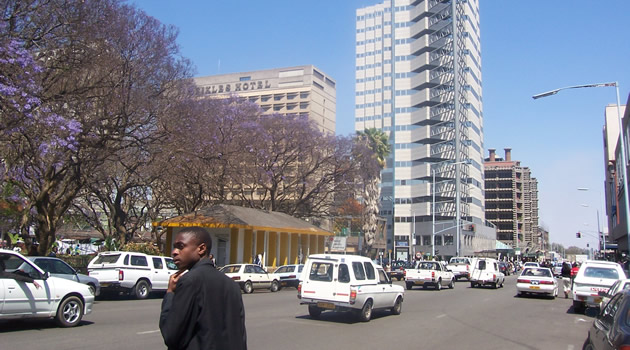Cry my beloved town planning profession

Shingai T. Kawadza Correspondent
Contemporary Zimbabwe’s spatial planning is marked by gross unpredictability and uncalled for dithering. Quite a number of communities have grown spontaneously rather than being rationally planned. Development or town planning now appears a “free-for-all-activity”. The realities on the ground in most urban areas have seen council general officials, councillors, the so called “land barons” and workers taking up town planning roles by storm.
Unapproved layouts are rising up everywhere and being implemented.
Most deemed open spaces previously reserved for recreational and institutional purposes are being turned into housing land.
The mere fact that the same open spaces were reserved for rational town planning concerns seems all rather irrelevant.
The situation on the ground is not welcome, considering the magnitude of development software’s and personnel that control development in Zimbabwe.
As anybody seems now proficient of designing a layout for any developable or habitable open space, rational coordination of these development plans becomes challenging.
Unsanctioned pegging of stands has become the order of the day, with property boundaries encroaching into road servitudes, sewer lines, electricity cables and water lines putting the life of landowners at risk.
Service capabilities of water supply, sewerage systems, drainage and roads are stretched to the limit or outdone hazardously.
This is basically going against the letter and spirit of the Regional Town and Country Planning Act (Chapter 29:12) which encourages the conservation and improvement of the physical environment and in particular promoting health, safety, order, amenity, convenience and general welfare, as well as efficiency and economy in the process of development.
Of late, few urban authorities appeared in charge of the planning process and one wonders whether development control is still a concept to talk about.
Tenuous questions arise as to whether Zimbabwe has existing planners that have the capacity to challenge and protect the well-being of their profession.
Many have argued that since Independence, Zimbabwean urban planners have failed to rise to the occasion and their role to detect the pace of development has been sidelined, while in reality they should be at the forefront, a situation that has resulted in planning practice falling into a serious dilemma.
It has also been said that planners have dismally failed the State, with its role thriving more in retrospection than foresight.
This is evidenced by the state of urban areas nationwide. Zimbabwe’s towns and cities have become a nightmare to live in. Emerging peri-urban settlements are without essential urban services a phenomenon that has jeopardised the health and welfare of inhabitants.
Absence of water and sewerage in these settlements leads not only to unhygienic conditions, pollution of water surface and polluted drinking water, but to the undermining of the foundations of the properties and to all kinds of diseases.
A good settlement is not only a well-planned area but also a safe and clean one in which people feel responsible for being stewards of their own environments
It is common knowledge that town planning is concerned with the future. As such, planners need to have vision of what they imagine the future to be, so that they have some reference point to guide today’s decision-making.
However, Zimbabwe’s planners are always caught in the web of reacting to problems rather than countering the challenges with forward rational planning.
One wonders the existence and whereabouts of planners and policy makers when the general populace was busy erecting shacks before Operation Murambatsvina early this millenium.
As if that is not enough, those shacks have resurfaced and the buzz word has been regularisation.
The nebulous question remains: Why react instead of being proactive? Peri-urban agricultural land is currently under threat due to the urban sprawl under the watchful eyes of the very same planners and local authorities.
Nothing seems to be done to curtail the future challenges that are likely to pop up as a result of such unpredictable growth.
This leaves one asking the same question again and again: Do Zimbabwe planners really exist and care about the well-being of Zimbabwe’s general populace?
More worrying is that thirty-seven years have gone by and we are still counting, and wondering whether such a critical profession is still to be legally registered as a professional body that will have its own Professional Planners and Practitioners Act that will regulate regional and urban planners’ profession, practice and conduct.
The Zimbabwe Institute of Regional and Urban Planners (ZIRUP) must wake up from their comfort zone and fight for the future of the town planning profession.
It seems the role of planners in society is now at the back of others like someone driving whilst not sitting on the steering wheel.
Other professions have gone as far as invading town planners’ roles under the watchful eyes of ZIRUP.
Zimbabwe has been producing competent rural and urban planners’ year in, year out through the Department of Rural and Urban Planning at the University of Zimbabwe and other planning schools worldwide.
Unfortunately, the same planners find themselves under a corporate planning body that is yet to be legally registered.
How can one expect to lobby for the protection of his/her profession yet there is no legal backing?
While allied professions, lawyers, engineers and surveyors are fully registered, l still don’t understand why a critical profession like planning is still struggling to do the same.
It is against this this background that with the increase in contemporary urban challenges including the urban sprawl, urban informality, poverty and vulnerability among other challenges, planning must not remain passive.
It has to withstand the unending pressure exerted in its realm.
Political and economic pressure remain major hindrances to the act of planning.
Planners must stand up and be counted like other professions.
ZIRUP has a bigger and challenging role to safeguard the planning profession.
The role of a town planner needs to be explicitly outlined, and the planner be given the chance to exercise his/her role without any interference, and in accordance with laid down standards and regulations.
Planning as already alluded to, has lingered largely as an instrument of the State, with its role thriving more in retrospection than foresight.
In reality, planning must act as an ameliorating tool that maps and prepare the future of the public as well as private sphere.
Shingai Kawadza works as a Planning Officer at Urban Development Corporation (UDCORP). He writes in his personal capacity. The opinions and views expressed therein must not be viewed as those of UDCORP.
Feedback: [email protected].










Comments